It is a sad reality that often occasions meant for celebrating—birthdays, Valentine’s Day, etc.—actually end up causing fights in our relationships. Maybe one partner didn’t get a gift the other expected, maybe there wasn’t enough fanfare, maybe there was a store-bought cake: no matter the details, it often happens that one partner’s high expectations ends in disappointment and unhappiness, creating strife on both ends.
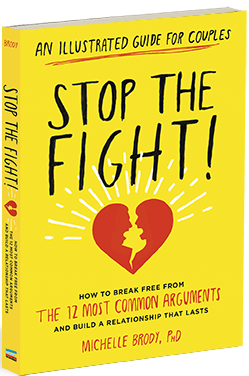
Michelle Brody, PhD, is the author of Stop the Fight!: An Illustrated Guide for Couples: How to Break Free from the 12 Most Common Arguments and Build a Relationship That Lasts, and an executive coach and clinical psychologist with over 20 years of professional experience as a practicing therapist and a specialist in resolving relational conflict. In her book she tackles the 12 most common fights couples get in using illustrations to help couples see their way out. Among them is “The Birthday Fight.” In the Birthday Fight, one partner is disappointed by the other’s inaction on a special occasion and the other partner tries to avoid failure by exerting less effort.
Although the fight pictured focuses birthdays, it is relevant to any holiday or special occasion that causes just such a fight. Read on if this sounds familiar and Brody’s advice will give you and your partner the best gift ever: a fight-free Valentine’s.
The “birthday fight” occurs when one partner (we’ll call her Sara) loves Valentine’s Day and has high expectations of her partner (we’ll call him Ed) for Valentine’s Day. Every year Sara gets her hopes up and when Ed doesn’t deliver on the special day, she feels like he doesn’t care about her. When Sara gets upset with Ed for disappointing her, he feels like her expectations for Valentine’s Day are controlling and he deals with the pressure by avoiding it altogether.
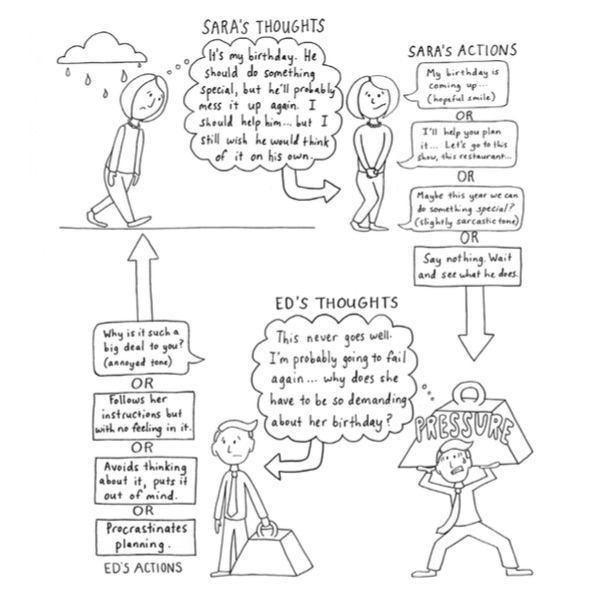
Both Sara and Ed feel threatened in this situation. Sara feels a loss of caring and love from Ed and Ed feels criticism and control from Sara. They both revert to Defense Mode Actions: Sara reminds and hints to Ed to do something special for Valentine’s Day and Ed tries to avoid failure and being controlled by not trying as hard.
To solve this fight, both partners need to recognize their own and their partner’s Defense Mode Actions. They also need to remember their partner’s good core and recognize that it is a threat causing their partner to deviate from that core. Sara needs Ed to know that she feels hurt and unloved by his actions, and Ed needs Sara to know that he feels there’s no way for him to succeed.
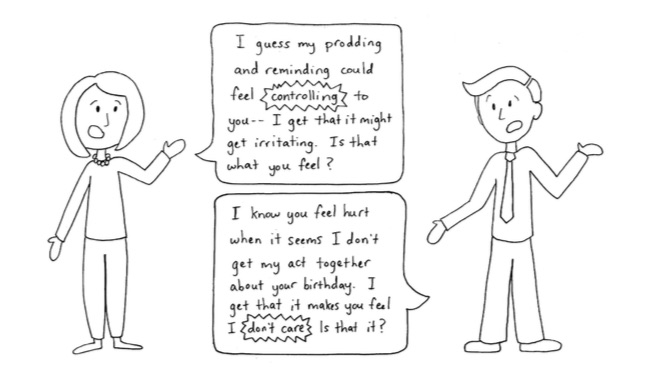
In the future, Ed needs to recognize that Sara just wants to feel special and loved and act accordingly and Sara needs to realize that Ed needs to feel like he can avoid failure.
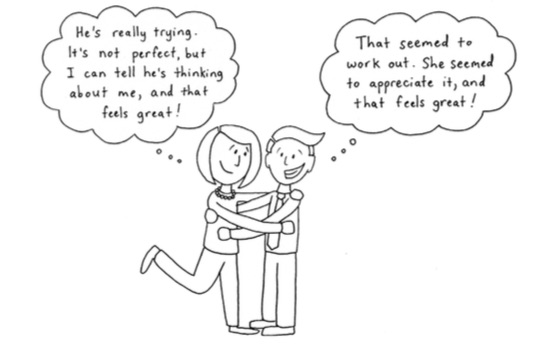
To help Stop the Fight! this Valentine’s Day, go through the following questions:
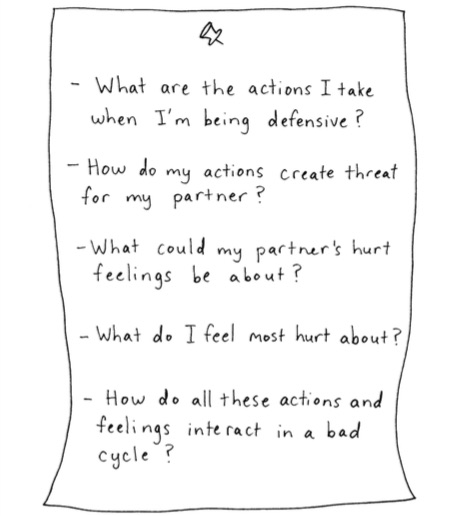
Learn more about how to stop the most common fights by checking out Stop the Fight! and grab the ebook on sale for $1.99 for all of February 2017!
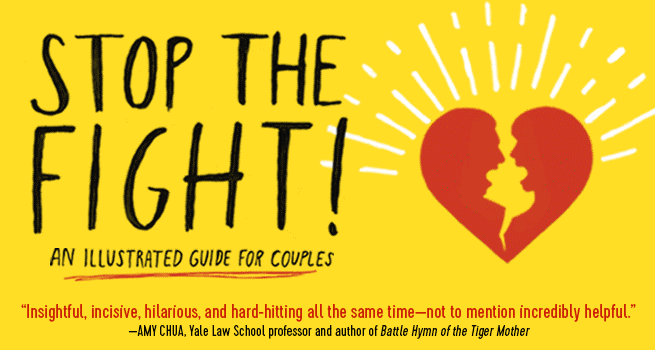
Michelle Brody, PhD, is an executive coach and clinical psychologist with over 20 years of professional experience as a practicing therapist and a specialist in resolving relational conflict. Her background also includes extensive experience in teaching, coaching, and scientific research. She has served for more than a decade as a senior trainer for psychologists and a business consultant, teaching others what will (and won’t) catalyze lasting change. Dr. Brody is the founder of Coaching for Couples, an innovative practice for couples seeking time-efficient change.


